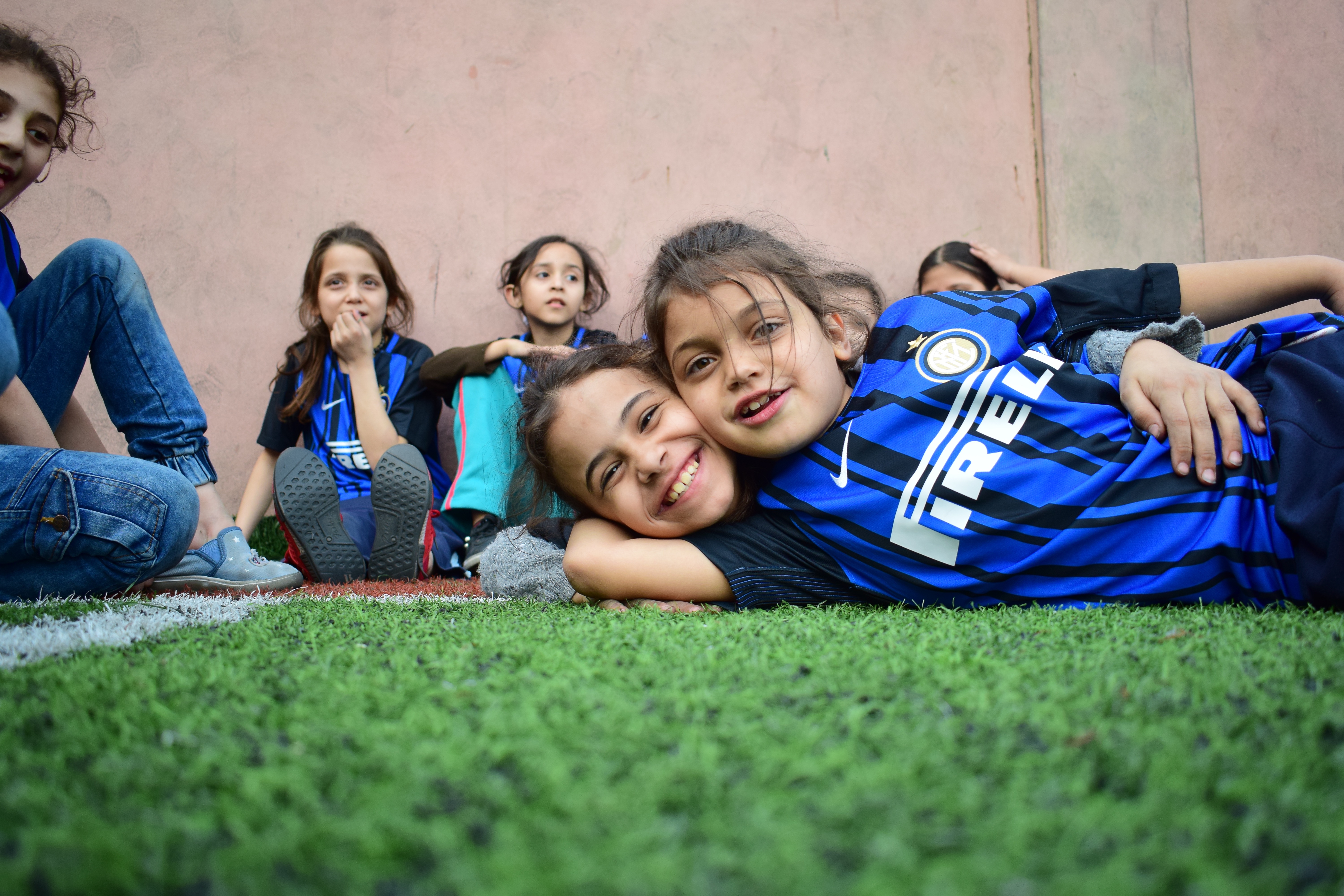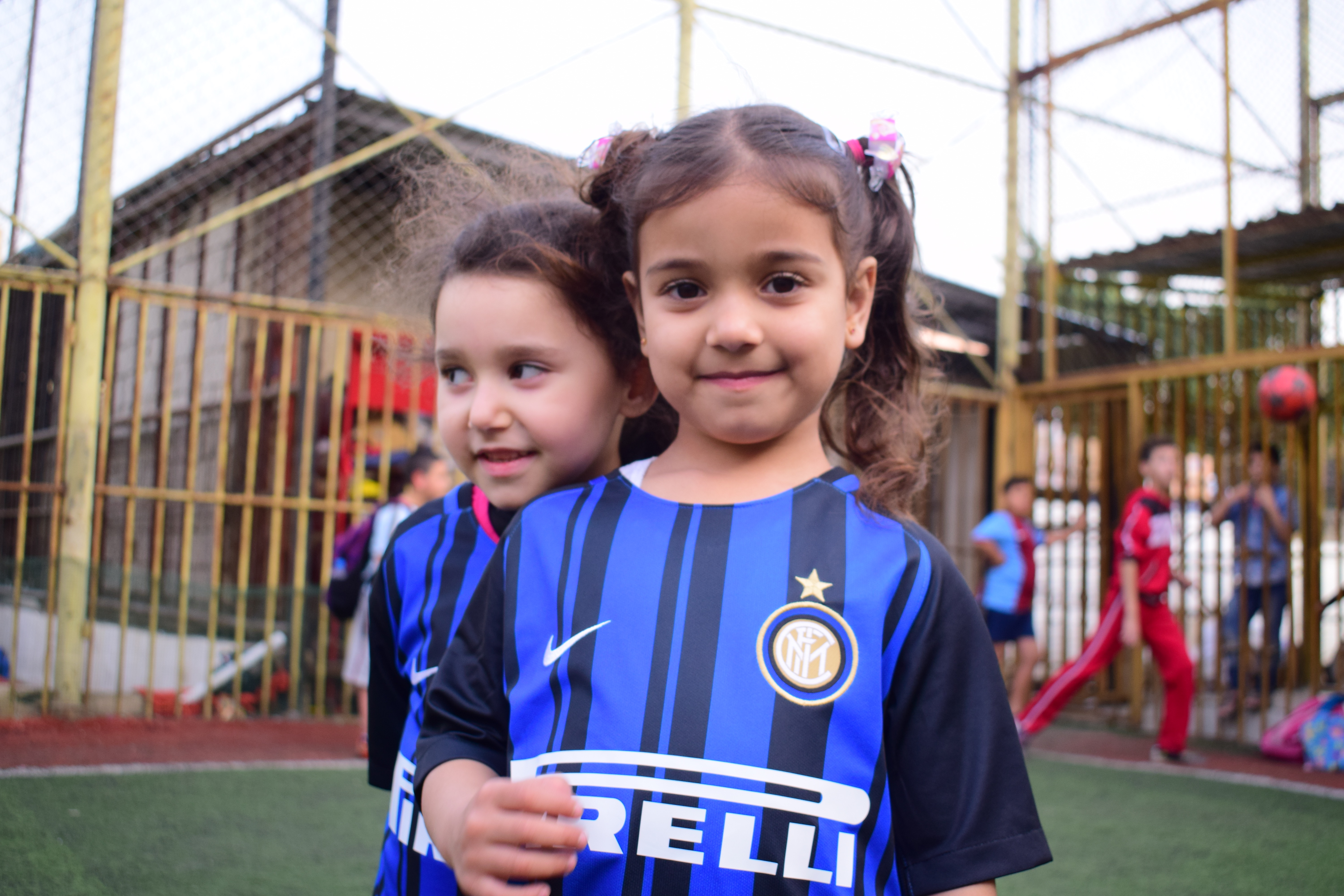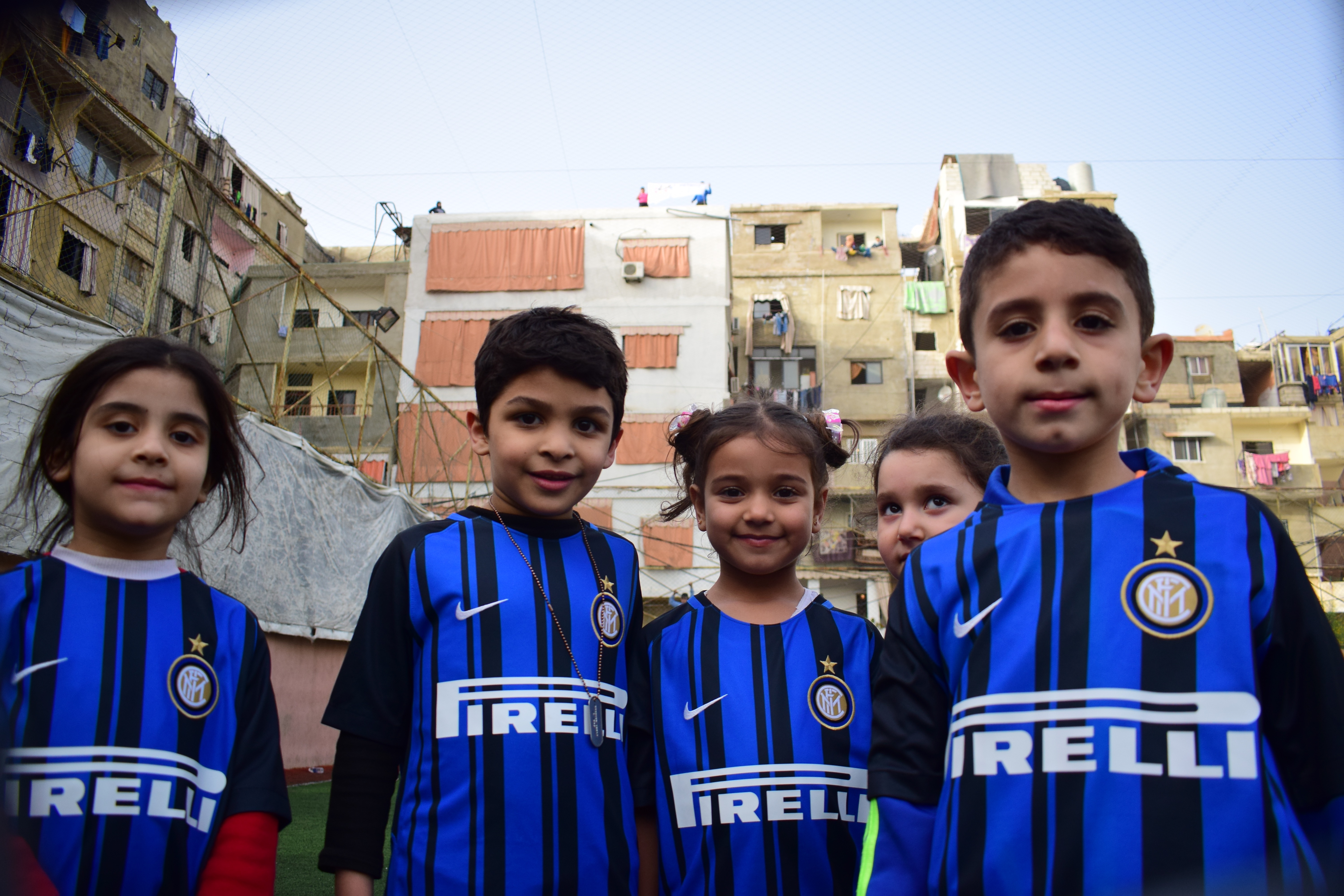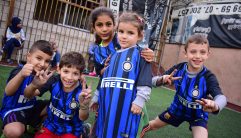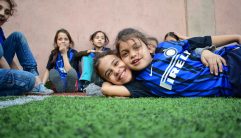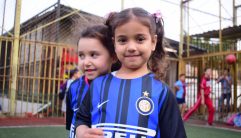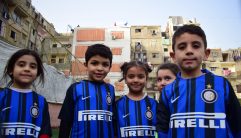Inter Campus have concluded their latest important mission in Beirut, Lebanon. The objective was to lay the foundations for a new base in the Lebanese capital, located in a refugee camp in Shatila. This will exist alongside the Campus that has already been active in the south of the country for a number of years, largely thanks to the Italian contingent of UNFIL.
Since 1948, the Lebanese capital has been home to three refugee camps that were set up to take in Palestinian refugees, although they suffered during the devastating civil war that took place from 1975 to 1990. Today, Lebanon is a melting pot of many different cultures and religions (18 religions practised) and is home to a million Syrian refugees who’ve fled the ongoing seven-year conflict in their country. Shatila extends across one kilometre of land and consists of around 30,000 people (official figure of those registered amounts to around 10,000), mostly made up of Palestinians and Syrians.
Working within this ‘favela’, characterised by very high buildings, small and suffocating streets and uncovered electrical cables, Inter Campus have partnered up with ANERA, an American NGO that for 50 years has looked to help Palestinian refugees in the Middle East. The project is aimed at 80 children living in a violent environment aged between six and nine – those who lack all forms of primary care and often come from complex family backgrounds.
There are three local coaches – Othman, Khalil and Bilal – and they all grew up in the camp. Today they work to guarantee local children to right to play and study, taking them off the streets and away from a potential life of marginalisation. Societies often fail to provide refugees with the opportunities that normal citizens enjoy, whether they are linked to work or schooling.
As always, the Inter Campus delegation arrived in their target country after exchanging information at a distance, aligning with possible new partners to guarantee days of training with the little ones and possible new coaches who must adjust to our method and mentality, while also using their own initiative. All of this to make our project as natural and efficient as possible, guaranteeing the kids an opportunity to have a local alternative in the afternoons. Giving them the chance to practice a sport with simple and strong values, hopefully leading them away from a potentially dangerous or unproductive life.
The story of our fantastic adventure continues and now extends to a place previously marked by violence in the past (the Shatila massacre of 1982), as we look to create a new group of enthusiastic and hopefully happy Intercampisti.
photo by courtesy of Saiid Saliba
03.04.2018




![[EXPANSION AND PROGRESSION FOR INTER CAMPUS LEBANON PROJECT]](https://intercampus.inter.it/wp-content/uploads/2018/04/DSC_0052x.jpg)

